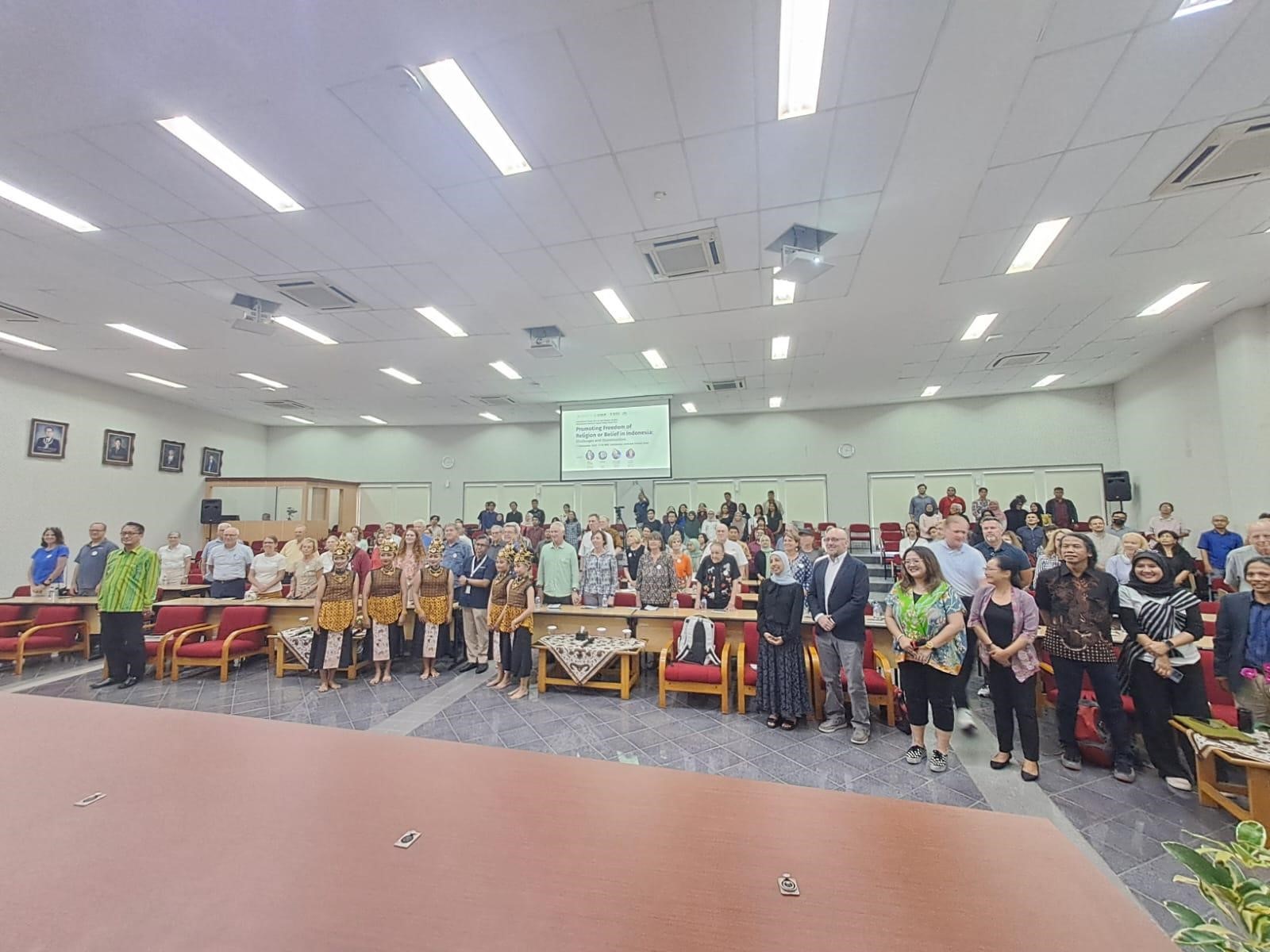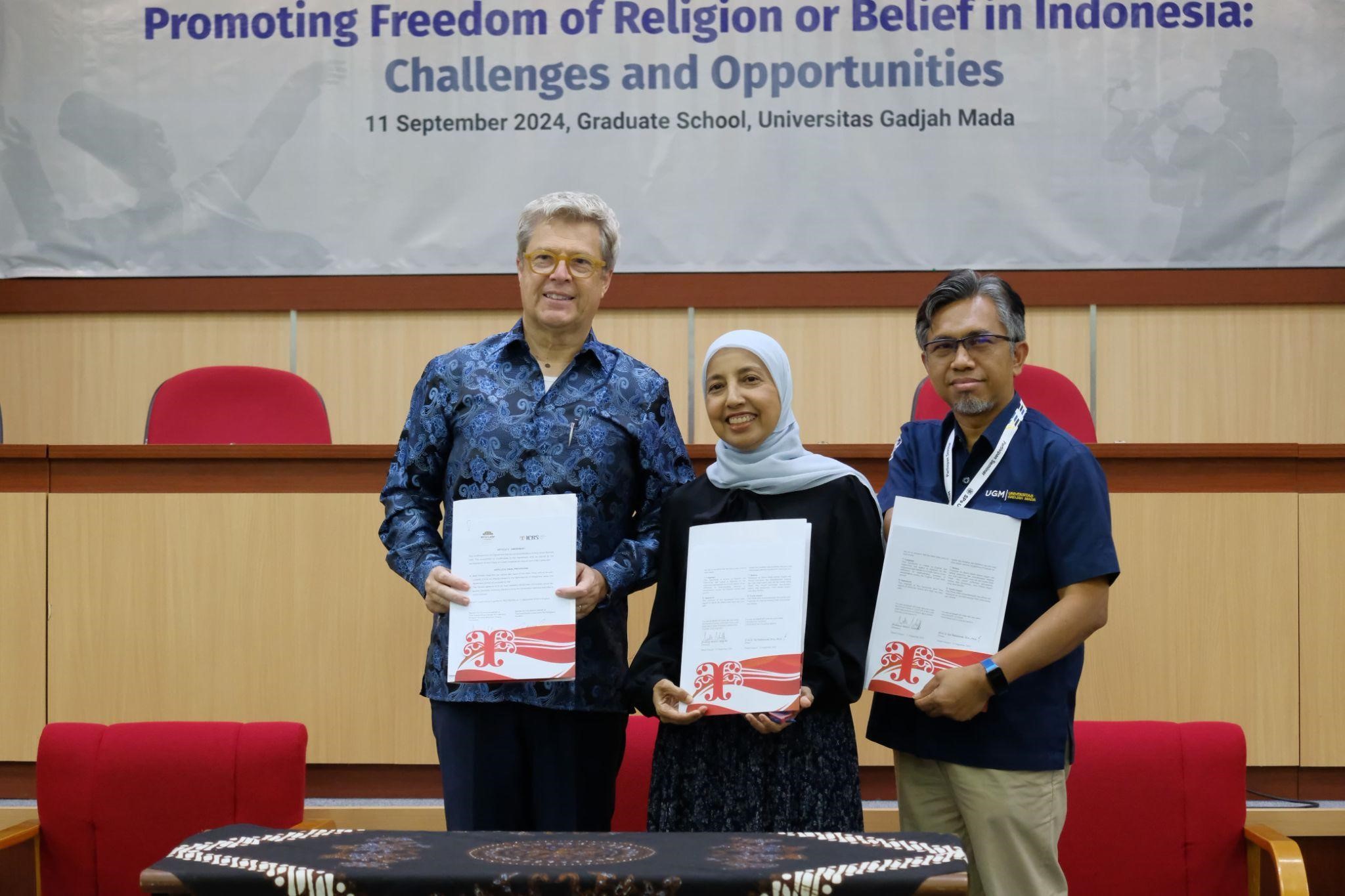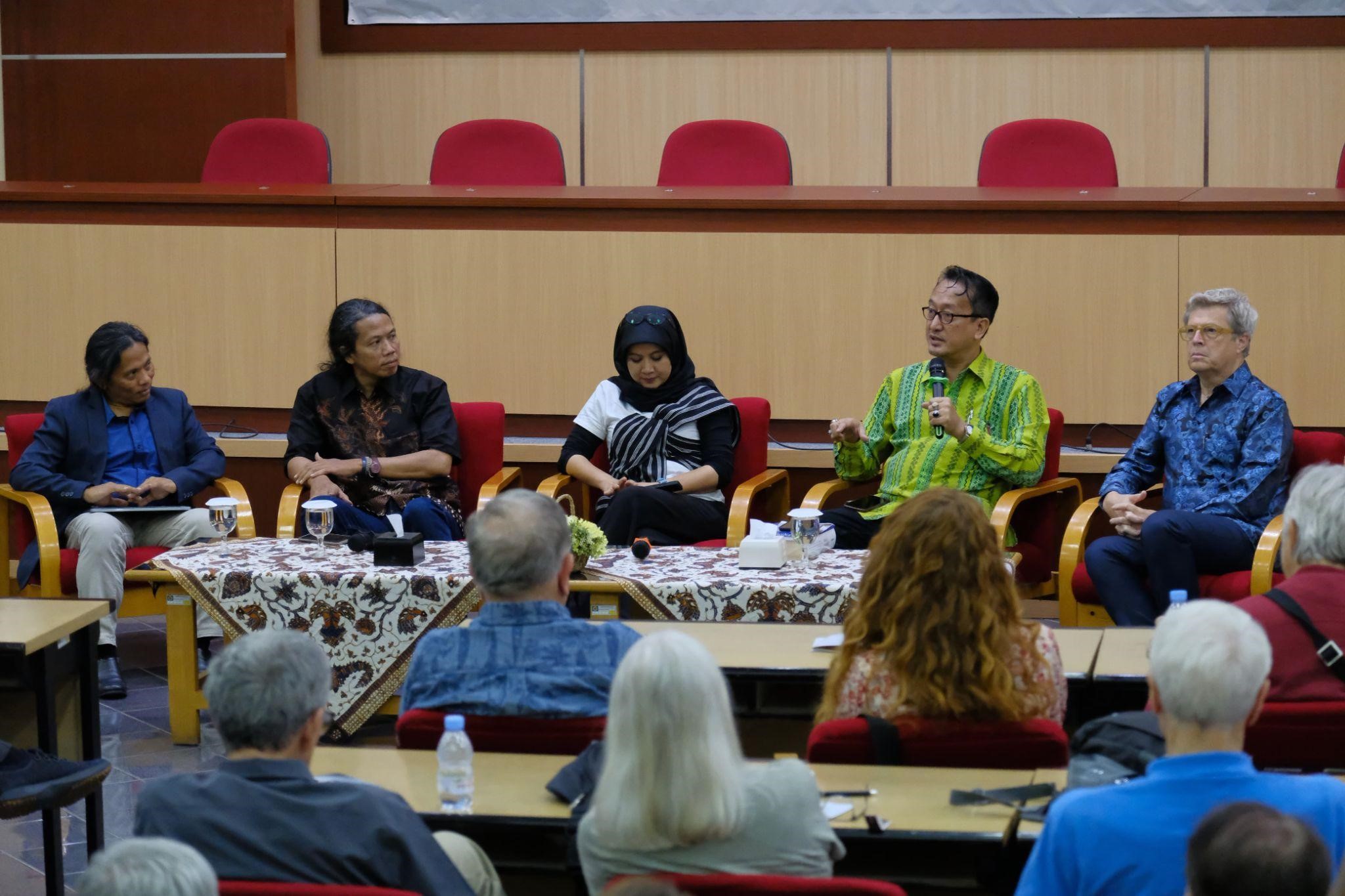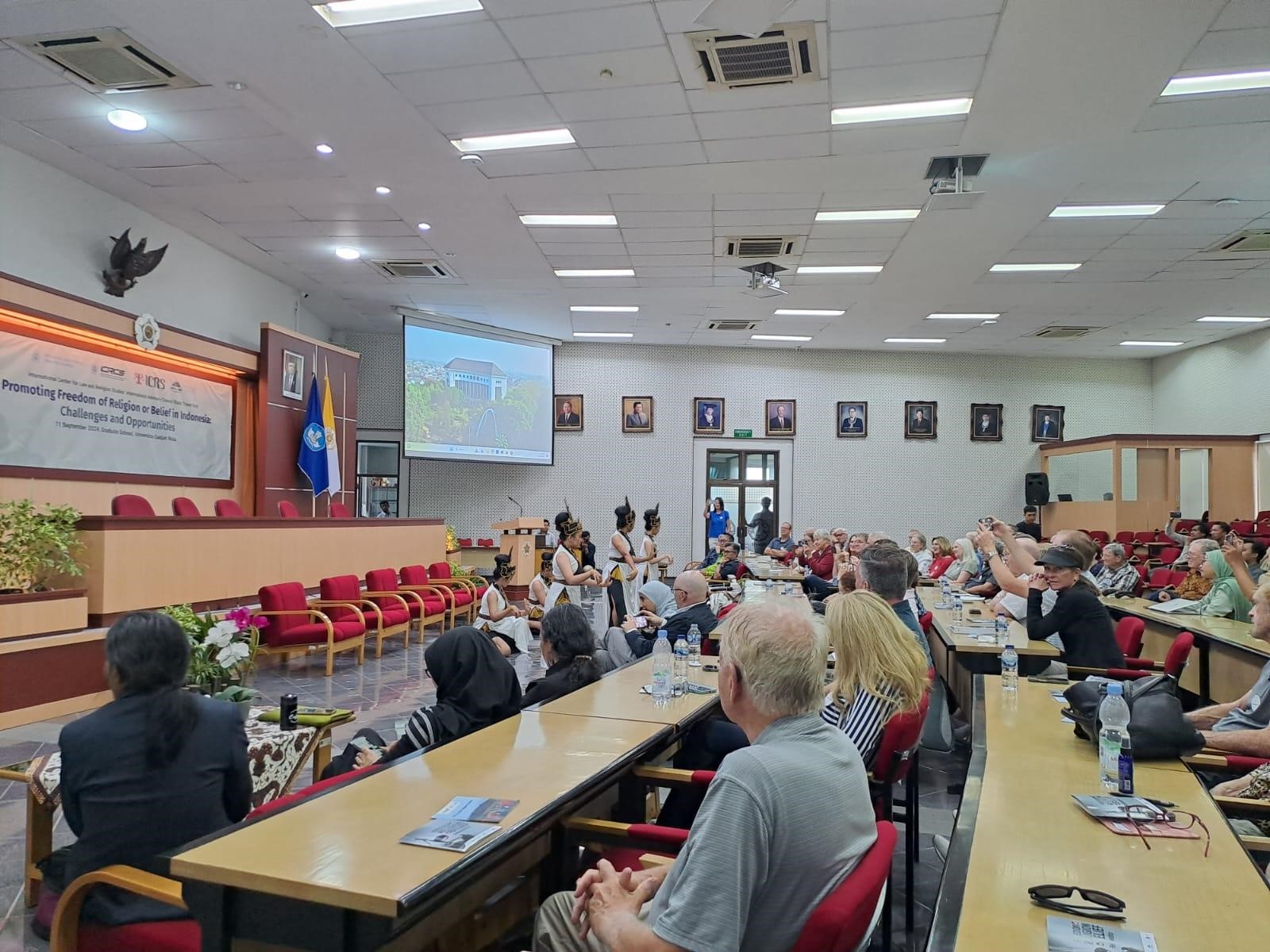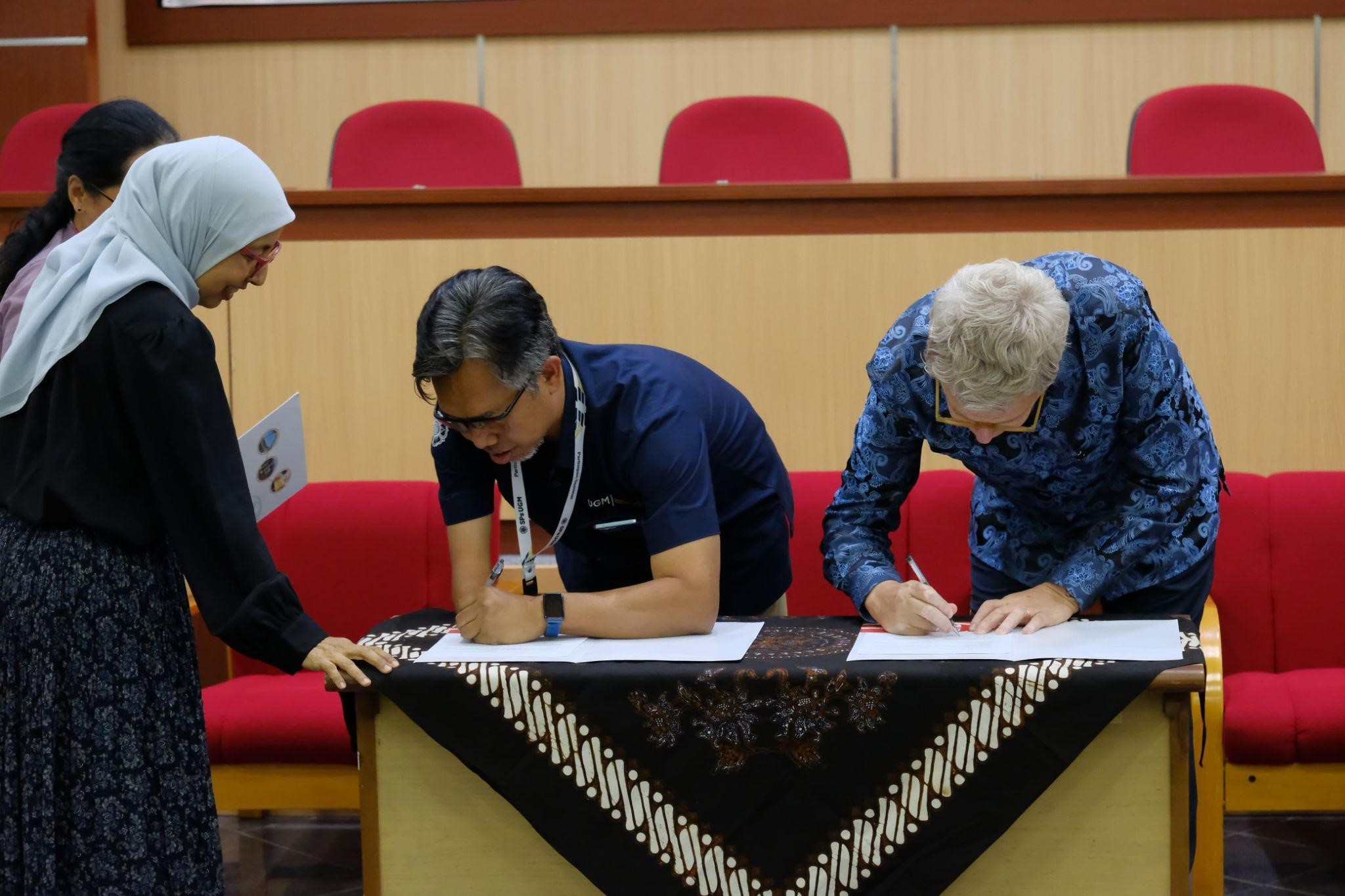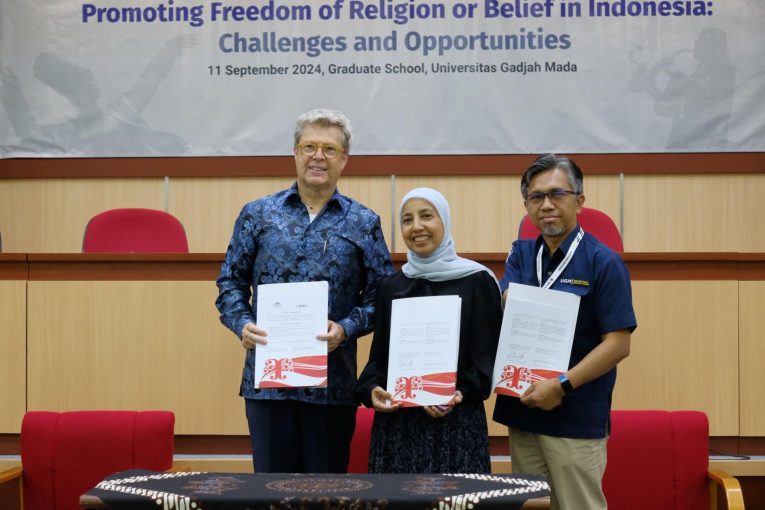
Yogyakarta (11/9), the Master of Religion and Cross-Cultural Studies Program (Center for Religious & Cross-Cultural Studies / CRCS) and the Inter Religious Studies (IRS) Doctoral Study Program in collaboration with The Brigham Young University’s International Center for Religion and Law Studies (BYU-ICLRS) The International Advisory Council (IAC) held a discussion event regarding freedom of religion and belief. This event took place in the Auditorium of Unit 1 Building, Gadjah Mada University Postgraduate School.
Competent resource persons presented in this activity came from various profiles such as lecturers, researchers, practitioners and activists in the scope of human rights and religious freedom. The speakers who attended included Brett G. Scharffs (Directors BYU ICLRS), Hurriyah (Chair of ISFoRB), Manunggal K. Wardaya (SEPAHAM Indonesia), and Dr. Samsul Maarif, M.A, Head of the CRCS Program. Dr. Techn. Khabib Mustofa, S.Si., M.Kom., Deputy Dean for Finance, Assets and Human Resources was also present and gave an introduction to this discussion session.
The theme was “Promoting Freedom of Religion or Belief in Indonesia: Challenges and Opportunities”. This conference includes discussions on educational programs being developed regarding sharia and human rights as well as scientific background and cases of controversy in Contemporary Indonesia. This session also included the signing of a Memorandum of Understanding (MoU) and Cooperation Agreement (PKS) between the Postgraduate School and BYU-ICLRS and the IRS Study Program as implementers.
One of the things highlighted in this discussion is the presentation regarding politics in religious freedom in Indonesia delivered by Hurriyah. Appropriate steps to carry out religious freedom actions as a form of realizing human rights include policy advocacy and judicialization of religious freedom, popularizing Freedom of Religion and Belief (FoRB) discourse and education, as well as increasing the capacity of civil society in maintaining and promoting FoRB.
In addition to developing collaboration, this activity is expected to increase public insight and awareness, especially regarding understanding of freedom of religion and belief, so that it can create a social life full of tolerance and respect for inter-religious communities. This is in accordance with the Indonesian state guidelines contained in the first principle of Pancasila.
Tags: freedom of religion and belief, collaboration, tolerance, religion, culture, SDG 4: quality education, SDG 5: gender equality, SDG 10: reduced inequality, SDG 16: peace, justice and strong institutions, SDG 17: partnerships to achieve objective
Author: Siti Muyasaroh

